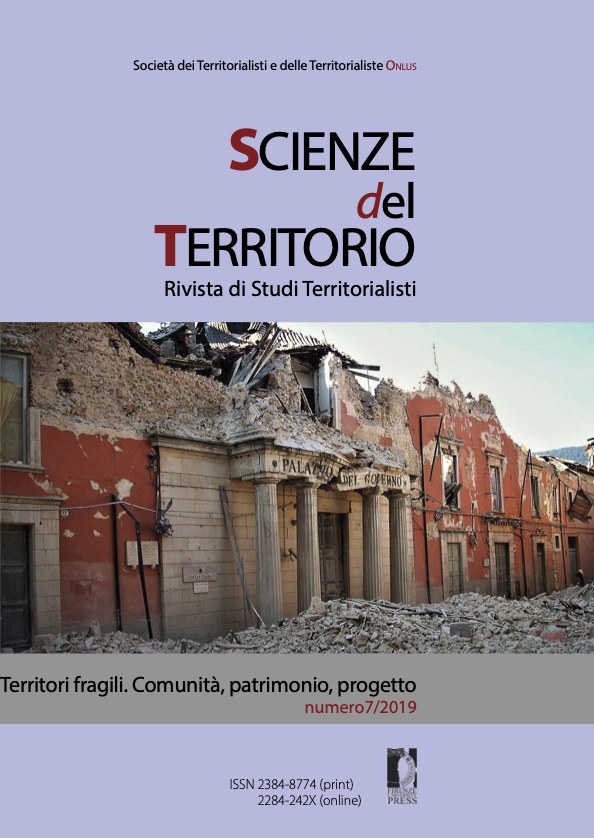Published 2019-12-27
Keywords
- earthquake,
- structural invariants,
- territory,
- safe society,
- self-government of commons
How to Cite
Abstract
From a territorialist point of view earthquakes, and more generally natural risks, are to be understood as long-term structural invariants of the territory. This involves a change of paradigm, a sort of conceptual transition from ex post intervention to a culture of prevention and programmed maintenance that operates at multiple levels and with multiple cultural visions: from the creation of a ‘safe society’, where security is not only guaranteed by exogenous and institutional actors but by virtuous mechanisms of endogenous organisation, up to the generation of broad vision and long-term perspective scenarios, able to take into account social desiderata and normative visions of development (social creativity, real utopias, etc.), together with the unpredictable inevitability of natural events (in this case earthquakes). For the safe society it is necessary to turn towards a real complementarity between contextual and expert knowledge, whether we speak of social self-defence ability from catastrophic risks, whether of constructive skills, whether finally of activating a scenario building activity, potentially engaging inhabitants and territory in a multigenerational perspective. A perspective clearly identifying a path of neo-centrality of the so-called ‘fragile’ areas, based on the virtuous (re)use of their patrimonial wealth (environmental, cultural, landscape, agro-forestry, etc.), through institutional architectures and practices of self-government of commons.


